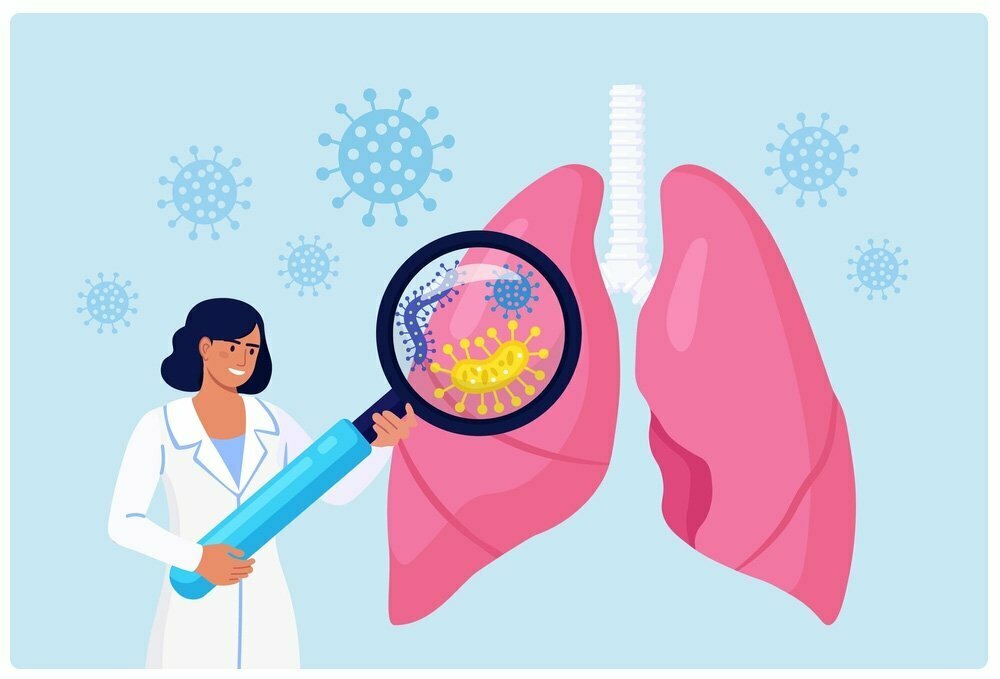Homeopathic Asthma Treatment
Why does an asthma attack happen?
An asthma attack can happen due to three reasons, including mucus production, bronchospasm, and inflammation. In inflammation, the linings of the lungs’ airways become narrow that doesn’t let much air out or in of the lungs. In mucus production, the body creates more mucus that blocks airways. Finally, in bronchospasm, the muscles of the airways get tightened that and make airways swollen, which restricts air from flowing easily.
Types of Asthma
- Aspirin-induced Asthma: It occurs when people take Aspirin, along with sneezing, cough, sinus pressure, or a runny nose.
- Occupational Asthma: only impacts people working in or near the chemical industry.
- Eosinophilic Asthma: is a dangerous kind of Asthma that occurs due to increased blood cells level called eosinophils.
- Cough-variant Asthma: is a long-term cough.
- Allergic Asthma: can be caused due to pollens, molds, and other relevant allergens.
- Non-Allergic Asthma: can be caused due to external factors, including stress, weather change, exercise, and illness.
- Adult-onset Asthma: is more common in people below age 40 years.
- Exercise-induced bronchoconstriction: it is also known as exercise-induced Asthma that occurs during physical activity when people breathe in air that is drier than air present in their lungs.
Complication associated with Asthma
- Sleep disruption
- Respiratory failure
- Airways remodeling
- Permanent narrowing down of the tubes that passes air in and out in lungs
- Atelectasis
- Status asthmatics
- Rib fracture
- Pneumonia
Main Causes of Asthma
- Environmental factors: children are more vulnerable to developing symptoms of Asthma due to environmental factors. These factors include passive smoking, viral infections, and some allergens that can impact the immune systems of infants.
- Respiratory infections: young children that are still under-progress of developing lungs can be affected by respiratory conditions like RSV (respiratory syncytial virus).
- Genetics: if you have a family history associated with Asthma, you are more vulnerable to developing the symptoms of the disease.
Get Free Consultation!
Some other causes are
- Obesity: Individuals with a BMI of 30 or above are at high risk of developing Asthma.
- Tobacco smoke: it is a common trigger for Asthma as smoking irritates the airways and makes them narrow, swollen, and filled with sticky mucus.
- Air and food chemicals: chemicals including plastics, carpeting, insulation, adhesives, enzymes in detergents, shellac and lacquer, epoxy resins, foam and rubber, and dyes can lead to Asthma.
- Numerous medications: some medications are prone to trigger Asthma symptoms, including Aspirin and other NSAIDs like ibuprofen and naproxen.
- Pollen and Dust mites: seasonal allergies can cause lung issues, in which pollen and dust mites are considered the most common triggers of allergies that lead to Asthma.
- Mold: it is also a kind of allergy that triggers Asthma symptoms, including wheezing, cough, or shortness of breath.
- Climate change: it enhances water and air pollution that leads to aggravating chronic respiratory diseases like Asthma.
- Pet hair: feathered and furry animals produce dander that is a common trigger for Asthma symptoms, including chest tightness, shortness of breath, and wheezing.
- Air pollution: two pollutants, particle pollution, and Ozone are present in the air that can impact the respiratory system of people and lead to Asthma.
- Strong smells: industrial cleaners, nail polishes and removers, and air fresheners can trigger symptoms of Asthma.
- Stress: it is both a direct and indirect trigger of Asthma that can cause an individual to experience a flare-up by making them more vulnerable to their typical triggers.
Symptoms of Asthma
- A persistent cough
- A rapid heartbeat
- Breathlessness
- Fatigue
- Chest tightness and pain
- Wheezing
- Trouble sleeping due to breathlessness
- Decreased mental alertness


Prevention of Asthma
- Avoid tobacco smoking
- Avoid secondhand smoking
- Avoid Asthma triggers
- Maintain an active physical regimen
- Measurement of breathing
- Get vaccinated for pneumonia
Homeopathy over Allopathy
Allopathic medicines mainly focus on eliminating the disease symptoms by influencing the body’s natural defense, while Homeopathy adopts the body’s biological responses by stimulating the healing symptoms or attacking the root cause of the disease. Besides this, Homeopathy follows the principle of “source that causes the problem will also cure it.” It is the biggest reason that classifies Homeopathy from Allopathy.
Treatment with Homeopathy
Similarly, the experts of Bharat Homeopathy offer patients naturally comprised treatment prepared explicitly according to the client’s state or condition. Hence Homeopathic Asthma Treatment at Bharat Homeopathy focuses more on the history and background of the infirm. We not just focus only on the treatment but also provide appropriate medications and guide the patients on how they can maintain a regular healthy life with diet plans according to their condition.
